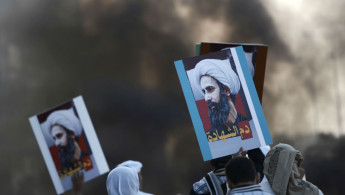Fears as Saudi forces seal off eastern Shia town
Saudi Arabia's security forces have sealed off a Shia-majority town in the east of the country following months of unrest and clashes, Human Rights Watch said on Sunday.
Saudi forces seized control of the al-Masoura district of al-Awamiya last week following a months' long security campaign, which flattened entire blocks of the town and killed scores of civilians.
HRW said on Sunday that Saudi security forces had "surrounded and sealed off" Awamiya and appealed for detente.
"Saudi authorities should take immediate steps to allow people to safely return home, allow business and clinics to reopen, and compensate residents for property damage and destruction caused by security forces," HRW's Middle East director Sarah Leah Whitson said.
Large sections of the town, including civilian infrastructure, sustained extensive damage in the campaign, according to comparative satellite imagery from February and August.
The town in Saudi Arabia's oil-rich east was the hub of a short-lived protest movement in 2011, which coincided with the Arab Spring.
One of the movement's leaders Shia cleric Nimr al-Nimr was executed on terrorism charges by Riyadh on 2 January 2016.
Nimr rallied thousands of Saudis in Awamiya, and linked their movement to the mass protests of Bahrain's Shia-majority population against the Sunni rulers.
In May, Saudi bulldozers began demolishing Awamiya's historic district on 10 May with plans to tear down several hundred homes.
The demolitions sparked shoot-outs in the streets between security forces and Shia gunmen and stoked sectarian tensions in the country.
Last month, Saudi Arabia executed four people convinced of terrorism in the province of Qatif.
Saudi Arabia's minority Shia community, which makes up an estimated 10 to 15 percent of the country's population of 32 million, has long complained of marginalisation.





 Follow the Middle East's top stories in English at The New Arab on Google News
Follow the Middle East's top stories in English at The New Arab on Google News
![Israeli forces ordered bombed Gaza's Jabalia, ordering residents to leave [Getty]](/sites/default/files/styles/image_330x185/public/2176418030.jpeg?h=a5f2f23a&itok=_YGZaP1z)

